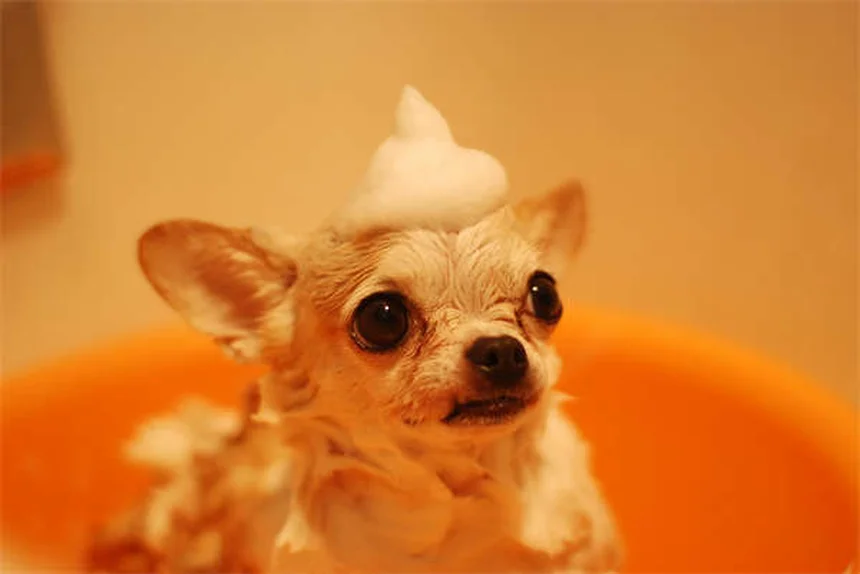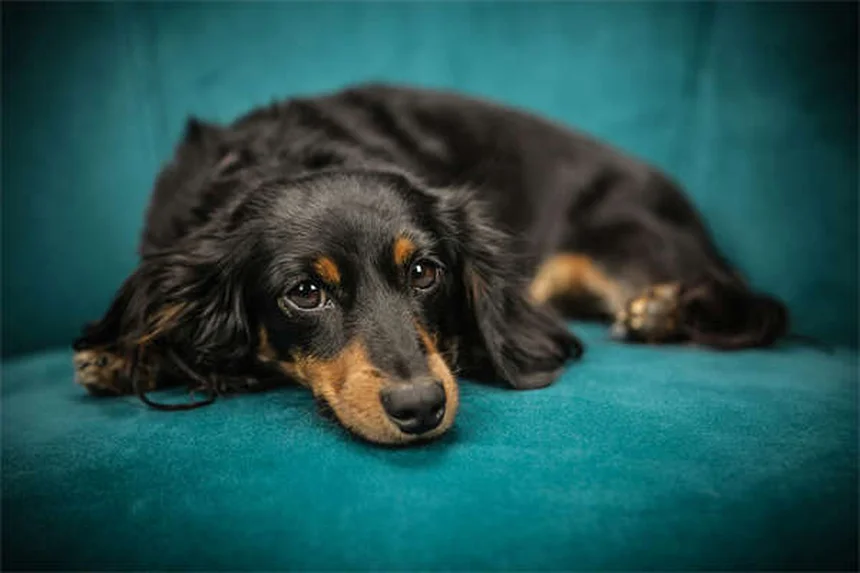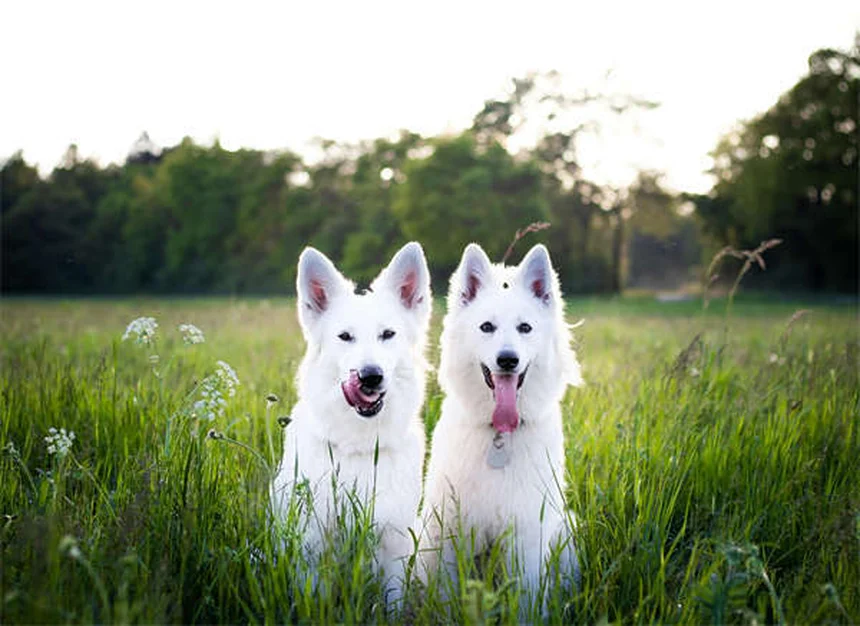Why do cats grind their teeth? The answer is simple: they're in pain. As a pet owner for over 15 years, I can tell you that teeth grinding (also called bruxism) is never normal in cats. According to veterinary experts like Dr. Alexander M. Reiter from UPenn, when you hear those clicking or chattering sounds, it's your cat's way of coping with discomfort - usually from dental disease or other health issues.The most common reason we see is tooth resorption, which affects a shocking 75% of cats over age 5. Imagine your cat's teeth literally dissolving from the inside - no wonder they grind! Other culprits include gum disease, mouth ulcers, and even misaligned teeth (especially in breeds like Persians and Siamese). The good news? Most causes are treatable if caught early. In this guide, I'll walk you through everything you need to know about feline teeth grinding - from symptoms to solutions - based on my experience working with veterinarians and caring for dozens of cats.
E.g. :Hamster Antibiotic Dangers: Signs, Treatment & Prevention
- 1、Why Do Cats Grind Their Teeth?
- 2、Beyond the Mouth: Other Health Concerns
- 3、How Vets Diagnose Teeth Grinding
- 4、Treatment Options That Actually Work
- 5、Prevention Is Better Than Cure
- 6、When to Rush to the Vet
- 7、The Hidden Language of Cat Teeth Grinding
- 8、Surprising Household Dangers for Cat Teeth
- 9、Fascinating Feline Dental Facts
- 10、Alternative Therapies Worth Considering
- 11、Your Cat's Dental Health Timeline
- 12、FAQs
Why Do Cats Grind Their Teeth?
Common Causes Behind This Strange Behavior
Ever heard your cat making weird clicking sounds? That's probably teeth grinding! Dr. Alexander M. Reiter from UPenn Vet School explains this usually means your feline friend is in pain. The main culprits? Let me break it down for you:
Tooth resorption - this nasty condition affects 75% of cats over 5 years old. Imagine your cat's teeth literally dissolving from the inside! The dentin (that's the hard part of the tooth) breaks down, causing excruciating pain. Your cat might approach their food bowl but drop kibbles because chewing hurts so much.
Other Dental Issues to Watch For
Gum disease and mouth ulcers can turn mealtime into torture. I've seen cats drool excessively when their mouths hurt - that's a big red flag! Some breeds like Persians and Siamese have unique problems:
| Breed | Dental Issue | Why It Happens |
|---|---|---|
| Persian | Malocclusion | Their squished faces cause misaligned teeth |
| Siamese | Overgrown canines | Long faces make upper fangs protrude too far |
Did you know some cats' teeth grow too long? We call this extrusion, and it prevents their mouths from closing properly - no wonder they grind!
Beyond the Mouth: Other Health Concerns
 Photos provided by pixabay
Photos provided by pixabay
When Dental Problems Aren't the Cause
Here's something surprising - bellyaches can make cats grind their teeth too! Conditions like pancreatitis or inflammatory bowel disease cause such discomfort that cats literally grit their teeth. Brain disorders might also trigger this behavior.
Think about it - would you ignore constant abdominal pain? Neither should your cat! That grinding noise might be their way of coping with serious internal issues.
How Vets Diagnose Teeth Grinding
The Initial Examination
Good news - 85% of dental problems are visible during a routine checkup! Your vet will look for:
- Broken or loose teeth
- Swollen gums
- Mouth ulcers
- Suspicious lumps
When Advanced Testing Is Needed
Sometimes we need X-rays or CT scans, especially for tricky cases like TMJ disorders. That's the joint connecting the jaw to the skull - when it malfunctions, you'll hear clicking sounds. In rare cases, biopsies or MRIs might be necessary.
Treatment Options That Actually Work
 Photos provided by pixabay
Photos provided by pixabay
When Dental Problems Aren't the Cause
Since grinding usually means pain, we start with medication to make your cat comfortable. Dr. Pamela Meuller from World of Animals Philadelphia says, "Cats get gum disease way more than humans!" Left untreated, they can lose teeth.
Long-Term Solutions
Professional cleanings are just the beginning. Sometimes we need to extract severely damaged teeth. But here's some hope - restorative crowns can save some teeth! The treatment plan always depends on the underlying cause.
Prevention Is Better Than Cure
Daily Dental Care Routine
Brushing your cat's teeth daily might sound crazy, but it's the gold standard! Start young so they get used to it. Use cat-specific toothpaste (human toothpaste is toxic to them). Even if your cat hates it initially, persistence pays off.
 Photos provided by pixabay
Photos provided by pixabay
When Dental Problems Aren't the Cause
Annual dental checkups should begin at age two. These visits allow early detection of problems before they become painful. Your vet will also screen for oral cancers during these exams.
Pro tip: Ask your vet about dental diets! Special kibble shapes can help scrape plaque off teeth as your cat chews.
When to Rush to the Vet
Emergency Warning Signs
If your cat stops eating entirely or paws at their mouth constantly, don't wait! Severe drooling or visible tooth damage also warrants immediate attention. Remember, cats hide pain well - by the time they show symptoms, the problem is often advanced.
The Bottom Line
Teeth grinding isn't just a quirky habit - it's a distress signal. Whether it's dental disease or another health issue, your cat needs professional help. The sooner you act, the better their chances for a full recovery and pain-free life!
Image credit: Henk Vrieselaar via Shutterstock
The Hidden Language of Cat Teeth Grinding
What Your Cat's Grinding Sounds Reveal
That chattering noise isn't just random - it's actually packed with meaning! Different grinding patterns can indicate specific problems. A high-pitched squeak often means tooth sensitivity, while a deeper grinding noise might suggest jaw joint issues.
Have you ever noticed your cat making these sounds at particular times? Many felines grind their teeth right after eating when food particles irritate damaged teeth. Others do it when grooming - that's when hair can get stuck between teeth and cause discomfort. Pay attention to these patterns because they give your vet crucial clues!
The Emotional Side of Dental Pain
Here's something most people don't consider - dental pain changes your cat's personality. I've seen the sweetest lap cats turn grumpy when their mouths hurt. They might stop grooming properly (hello, matted fur!) or avoid head scratches they used to love.
Think about how you act with a toothache - probably not your best self, right? Cats experience the same mood changes. That's why sudden behavior shifts should always prompt a dental check. Your grumpy old cat might just need a tooth extraction to return to their cuddly self!
Surprising Household Dangers for Cat Teeth
Everyday Items That Damage Teeth
You'd be shocked what common household objects can crack cat teeth! Here's a quick list of offenders:
- Plastic feeding bowls (they harbor bacteria)
- Hard treats marketed as "dental chews"
- Those cute little rubber hair ties cats love to play with
- Ice cubes (yes, some people give these to cats!)
Did you know most "cat toys" sold in stores are actually too hard for feline teeth? I always recommend soft rubber balls or fabric mice instead. And please - never let your cat chew on pens or other hard plastic items!
The Truth About Dry Food and Dental Health
Here's a myth we need to bust - dry food doesn't clean teeth. Those kibble pieces shatter on contact with teeth, providing zero cleaning action. In fact, the carbohydrates in dry food actually feed plaque bacteria!
So what actually helps? Raw chicken necks (under supervision) or specially formulated dental diets that have been clinically proven to reduce tartar. But even these are no substitute for brushing - they're just helpful additions to your dental care routine.
Fascinating Feline Dental Facts
How Cat Teeth Differ From Ours
Cat teeth are designed for tearing meat, not grinding plants like human teeth. Their molars are sharp and pointy - perfect for slicing through flesh. This explains why they struggle with dental issues when fed soft, processed foods instead of their natural diet.
Here's a cool fact: A cat's canine teeth have blood vessels and nerves running nearly to the tip! That's why broken fangs hurt so much and often require extraction. Unlike human teeth, cat teeth aren't great at self-repairing.
The Curious Case of Retained Baby Teeth
About 15% of kittens keep some baby teeth when their adult teeth come in. This causes overcrowding and makes proper cleaning impossible. I always check for this during kitten visits because removing those stubborn baby teeth early prevents a lifetime of dental problems.
Persian cats are especially prone to this - sometimes we find three teeth trying to occupy one socket! No wonder they develop dental issues so easily. If you have a purebred kitten, ask your vet to specifically check for retained deciduous teeth around 6 months old.
Alternative Therapies Worth Considering
Natural Pain Relief Options
While nothing replaces proper dental treatment, some natural methods can provide temporary relief. Cold chamomile tea (no caffeine!) can soothe inflamed gums when applied with a cotton swab. Coconut oil has natural antibacterial properties that may help with mild gingivitis.
But here's my professional warning - never use essential oils in your cat's mouth! Many are toxic to cats, and their sensitive systems can't handle concentrated plant compounds. Stick to vet-approved products for oral care.
The Future of Feline Dentistry
Veterinary dentistry is advancing rapidly! Some cutting-edge options now include:
- Laser therapy for gum disease
- 3D-printed custom crowns
- Stem cell treatments for tooth regeneration (still experimental)
While these options aren't mainstream yet, they show promise for giving our feline friends better dental outcomes. Who knows - in a few years, we might be able to regrow damaged cat teeth instead of extracting them!
Your Cat's Dental Health Timeline
What to Expect at Each Life Stage
Let me walk you through a cat's typical dental journey:
| Age | Dental Milestones | Recommended Care |
|---|---|---|
| 0-6 months | Baby teeth erupt and fall out | Check for retained deciduous teeth |
| 1-3 years | Peak dental health | Annual cleanings begin |
| 5-7 years | First signs of gingivitis | Possible first extractions |
| 10+ years | Advanced dental disease likely | More frequent cleanings needed |
Notice how problems start creeping in around middle age? That's why we recommend baseline dental X-rays by age 5 - they help us catch issues before they become painful.
Special Considerations for Senior Cats
Older cats often need modified dental care. Their thinner tooth enamel means we must use gentler cleaning techniques. Many seniors also have other health conditions that affect anesthesia safety.
But here's some good news - with proper care, even 20-year-old cats can keep most of their teeth! The key is starting prevention early and maintaining consistent care throughout their lives. Your vet can create a customized senior dental plan that considers your cat's overall health.
E.g. :Cat Teeth Grinding Causes and Treatment Options | PetMD
FAQs
Q: Is cat teeth grinding always a sign of dental problems?
A: While dental issues are the most common cause, cat teeth grinding can signal other health problems too. We sometimes see cats grind their teeth due to abdominal pain from conditions like pancreatitis or inflammatory bowel disease. Even neurological disorders can trigger this behavior. That's why it's crucial to get a full veterinary workup - not just a dental exam. From my experience, about 15% of grinding cases turn out to be non-dental related. The vet will check for things like TMJ disorders (jaw joint problems) through imaging tests if needed.
Q: How can I tell if my cat's teeth grinding is serious?
A: Watch for these red flags that mean vet attention is urgent: if your cat stops eating entirely, paws at their mouth constantly, drools excessively, or has visibly broken teeth. Here's a pro tip I've learned - cats are masters at hiding pain, so by the time they're grinding noticeably, the problem is usually advanced. Other warning signs include bad breath, weight loss, or food falling from their mouth while eating. If the grinding happens daily or lasts more than a few seconds at a time, schedule a vet visit ASAP.
Q: What's the best way to prevent teeth grinding in cats?
A: Daily tooth brushing is the gold standard, though I know it sounds daunting! Start young (kittens adapt best) and use cat-specific toothpaste. Even if you can only manage a few seconds at first, it makes a difference. I recommend annual professional cleanings starting at age 2, and asking your vet about dental diets - the right kibble shape can help scrape plaque. From my experience, cats who get regular dental care are 80% less likely to develop painful conditions that cause grinding. Don't forget those yearly checkups where the vet screens for oral cancer too!
Q: Can Persian cats really have teeth problems from their face shape?
A: Absolutely! As a Persian cat owner myself, I've seen firsthand how their adorable squished faces cause dental issues. Their shortened jaws often lead to malocclusion (misaligned teeth that don't meet properly), which creates abnormal wear and grinding. Siamese cats have the opposite problem - their long faces can cause upper canine teeth to protrude too far. The solution? More frequent dental checkups (every 6 months for these breeds), and possibly orthodontic care in severe cases. I always tell Persian owners to be extra vigilant about dental hygiene.
Q: What treatments are available for cats who grind their teeth?
A: Treatment depends on the cause, but typically starts with pain management since grinding indicates discomfort. For dental issues, professional cleanings and extractions of damaged teeth are common. I've seen amazing results with restorative crowns in some cases. If it's TMJ or malocclusion, your vet might recommend anti-inflammatories or even jaw surgery. For systemic diseases causing the grinding (like IBD), we treat the underlying condition. The key is working with a vet who specializes in feline dentistry - they'll create a customized plan for your cat's specific needs.

